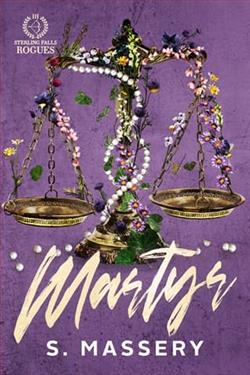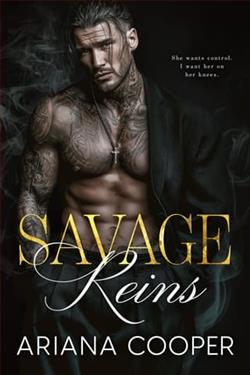Page 86 of Last Letter Home
‘No, Antonio!’ Paul sprinted over to the boy, but there was nothing he could do. The mayor’s grandson lay lifeless, blood spreading from the wound in his temple.
He rose slowly and turned to stare, horrified, into Richards’ face. The man was deathly pale, his lips raised in a brutish expression, the eyes glittering. Then the colour flowed back and realization softened his gaze. Paul licked his lips and pushed his helmet back with his hand. Richards still held the smoking gun loosely at his side. His hand trembled slightly.
‘You . . . bastard,’ Paul managed to say. For a long moment they stared at one another. Richards was first to break his gaze.
‘He was looting. He’d know the price.’
‘He was a boy. Just a boy. There is no weapon, where’s his weapon?’ The Paul he’d once been would have felt a prickle of tears. He badly wanted them to come, to feel human, but instead he simply felt numb. That’s what the war had done to him. He dug into his chest pocket for his handkerchief, shook it out and laid it like a shroud over the boy’s head, a futile gesture, but he made it all the same. Then he shouldered his rifle and walked away with weary step. Before the streets of the town swallowed him, he glanced behind. Ivor was still standing there motionless, staring down at the body.
Forty-one
Briony closed the door of her car with a weary gesture and looked about her. Westbury Hall was a dour place in December, the wisteria above the entrance a dead thing, the winter trees bordering the car park black and dripping from the misty rain. She shivered, wrapped her parka more closely round her and walked slowly up to the entrance.
‘Kemi, hello.’ The heavy door shut behind her. It felt surprisingly cosy in the high-ceilinged hallway, where Kemi, seasonal in scarlet skirt and jacket, was hanging gold baubles on a tall, slender Christmas tree.
‘Hi, Briony.’ Kemi grinned back. She appeared reassuringly the same as ever, except as they exchanged pleasantries her eyes darted continually to her left hand where a ring Briony didn’t remember seeing before dazzled out of the gloom.
‘Is that new?’
Kemi held out her hand, delighted the ring had been mentioned.
‘Last week,’ she said proudly. ‘We were going to announce it on Christmas, but in the end TJ didn’t want to wait.’
‘Well, congratulations,’ Briony said, thinking she wouldn’t have been able to make a decision like that when she had been twenty-one.
‘Thank you! You’ve come to see Mrs Clare, haven’t you? She told me.’
Briony had written to the old lady in the end. The reply had been penned in the same flowery hand as the card she’d received from her during the summer, the writing even more quivery than before, but there was nothing shaky about the tone of it. She’d be ‘delighted’ to see Briony again and so would Lulu, who was ‘very grateful’ for the time Briony had looked after her. It was extraordinary that Mrs Clare had survived so well the trauma of the summer, she thought, as she knocked on the door of the ground-floor apartment.
It was Avril who inched it open, nudging Lulu back with her foot. ‘Come in, won’t you? Lulu, bed.’ Safely admitted, her parka whisked away by Avril, who withdrew to the kitchen, Briony greeted the wispy-haired old lady who sat in the armchair facing the window. It was a shock to see her, she seemed sunken, diminished, but her blue eyes shone as guileless as before and she had no trouble remembering Briony’s name.
‘Don’t mind if I don’t get up.’ Mrs Clare’s voice was slurred. ‘I have to use this wretched thing now.’ She touched a walking frame that stood at one side of the chair.
‘The pattern on it’s very pretty,’ Briony said. Someone had wound decorated plastic tape round the metal.
‘That’s my granddaughter’s sense of humour. They sell the stuff in Liberty. Isn’t it marvellous what you can get now?’
‘Isn’t it?’ Briony drew up the easy chair positioned nearby and glanced through the window. ‘The garden looks colourful with all the berries.’
‘I think so, though it’s not at its best. Still, I like to sit here and remember.’ She sighed. ‘I’m afraid I live in the past these days. It all seems much clearer to me.’
They gazed out of the window together onto the dank garden with its winter shrubs and straggly lawn. The shape of it was clearer in winter. It was carved up by four paths that met at a central fountain, the beds that surrounded it spiked with the torsos of rose bushes. Beyond the garden, an arc of trees stood sentinel against pewter skies where rooks drifted like flakes of ash. The bleakness of the scene endowed it with a special beauty and it was pleasant to sit in the warmth with the scent of hot butter and mince pies.
Avril brought in the tray, the delicate tea plates accompanied by miniature paper napkins with scalloped edges and a holly berry design.
‘What are you both doing for Christmas?’ Briony asked. They talked about families and traditions for a while. Briony bit into pastry that melted in the mouth, tasted the sharpness of fruit and licked icing sugar from her lips as she listened.
Mrs Clare’s son and daughter-in-law were coming up and taking her to lunch at a country hotel. Kemi had ordered a few things online on her behalf because she didn’t like to go out. ‘She is a good girl. Has she told you about her engagement? She brought her young man to meet me. He has some strange name and is rather peculiar-looking, with one of those shaved hairstyles that seem fashionable, but he speaks very nicely.’
Briony managed to hide a smile at Mrs Clare’s acidity. When Avril had retreated to the kitchen once more, she asked after Greg, to be told that as far as she knew he was well, but he hadn’t been to see her lately. She spoke disapprovingly, which made Briony wonder whether he’d displeased her in some other way. She set down her plate, dusted some sugar powder from her skirt and edged the conversation round.
‘I’ve been doing quite a bit of research since I saw you last. I was sent another collection of letters, you know, this time written by the gardener cousin we talked about, Paul Hartmann, to Sarah Bailey.’
‘Letters,’ Mrs Clare mumbled through a mouthful. ‘I heard something about that.’
‘Did Greg tell you?’ Briony was surprised.
‘Yes. The whole thing has upset his father by all accounts. You know it’s all very well this digging around in other’s lives, but it doesn’t do any good. To some of us it’s not history, it’s personal. We lived through it. It was a terrible time and some people were put into situations they would never have faced in peacetime and we can’t entirely blame them for things they did.’















